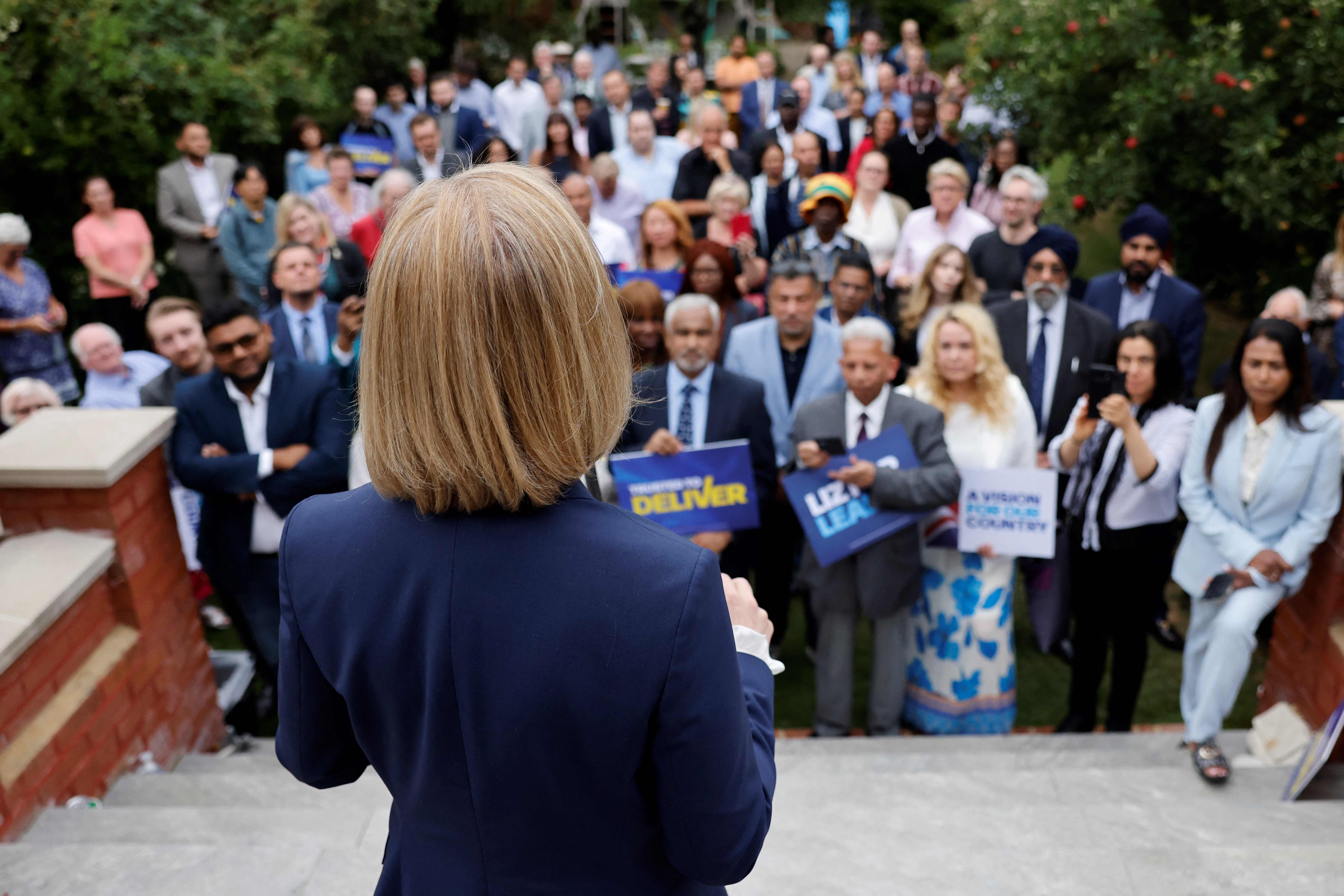The Tories will pay for ignoring why Boris Johnson resigned
Liz Truss and Rishi Sunak seem reluctant to talk about the elephant in the room – to acknowledge why this contest is happening, writes Andrew Grice


“We must never forget why Boris had to resign,” one former minister told me. Yet the Conservatives are already suffering from collective memory loss.
Their leadership election has a hole at its heart. There has been no acknowledgement of why it’s happening – Boris Johnson’s flouting of the rules and his lies. His giant shadow hung over the first hustings for Tory members in Leeds last night; repeated mentions of his name gathered applause from the 1,400 party members present.
Liz Truss and Rishi Sunak seem reluctant to talk about the elephant in the room – the need to restore standards in order to prevent another prime minister from behaving like Johnson. My inbox is bulging with their policy commitments, but there is nothing about how they would clean up politics. They make vague references to “restoring trust”, promising “honesty”, but have not yet said how they will achieve this.
It’s almost as if Johnson had decided to stand down of his own volition after 10 years at the helm, or resigned because of ill health. People tuning in to the Tory debate must be bemused. In June, more people than ever (26 per cent) regarded “lack of faith in politics and politicians” as an important issue facing the country, ahead of matters relating to the NHS and defence. Three in four people regard Johnson as untrustworthy. But for his successor, merely being “not Boris” will not restore public trust, any more than being “not Corbyn” will win Keir Starmer the next election.
Remarkably, Sunak didn’t mention Johnson’s behaviour last night when he spoke about his own resignation, saying it was about differences between them on economic policy. But that’s not what brought Johnson down. Unfortunately for Sunak, his resignation has become a vote-loser for him in the contest, as was clear when one Tory member told him last night he had “stabbed Boris Johnson in the back”.
Sunak was right to quit as chancellor, as the avalanche of ministerial resignations that pushed Johnson out would not have happened otherwise. However, Truss shrewdly anticipated the Tory grassroots reaction: that resigning would be seen as disloyal. She praised Johnson in the debate, pointedly telling members: “I was proud to serve as a loyal member of his cabinet.” Ben Wallace, the defence secretary, who came out for Truss last night, twisted the knife, accusing Sunak of dereliction of duty in walking out – another sign that the foreign secretary has the wind in her sails.
Clearly, Truss and Sunak are worried that, if they criticise Johnson, they will offend the Tory members whose votes they court. Yet they may be misreading the party’s mood. When YouGov asked Tory members what they wanted in their new leader, more than half prioritised certain personality traits, putting them ahead of a candidate’s position in terms of conventional conservatism, Brexit, policy proposals or an anti-woke agenda. The quality they wanted most was “honesty/integrity.”
If he wins, Sunak will ask Christopher Geidt to return to his role as the prime minister’s ethics adviser, a vacant post that must be filled quickly by Johnson’s successor. But they should go further by implementing several reforms that, unlike the expensive promises (such as Truss’s pledge to build Northern Powerhouse Rail) being racked up during the contest, would not cost a bean.
The ethics adviser should be put on a statutory footing and have the power to start investigations without the prime minister’s permission, including those involving the prime minister. The code of conduct for ministers should be toughened, by restoring the seven principles of public life – selflessness, integrity, objectivity, accountability, openness, honesty and leadership – to the prime minister’s foreword. The civil service code should also be tightened following the Partygate affair. There should be tougher rules on public appointments, on business appointments for former ministers, on lobbying by MPs, and on appointments to the House of Lords, to prevent abuse of the system.
To keep up to speed with all the latest opinions and comment, sign up to our free weekly Voices Dispatches newsletter by clicking here
Johnson’s successor does not need to set up another review. The committee on standards in public life has an oven-ready blueprint for change gathering dust on the Downing Street shelf.
Early action will be in the new prime minister’s interest: the further measures they will inevitably have to take to relieve the cost of living crisis this autumn may bring little political reward if the government is not trusted.
Voters will surely be bemused if standards in public life remain in the “too difficult” box during the leadership election. The public regard the most important attributes for a politician to be honesty, being trusted, and having integrity. People who voted Tory in 2019 who have since deserted the party are by far the group most likely to support proposed reforms.
The Tories will pay an electoral price unless they show voters they have learnt lessons from a premiership that ended in disgrace, and will leave the field vacant for Labour to promise to clean up politics.






Join our commenting forum
Join thought-provoking conversations, follow other Independent readers and see their replies
0Comments